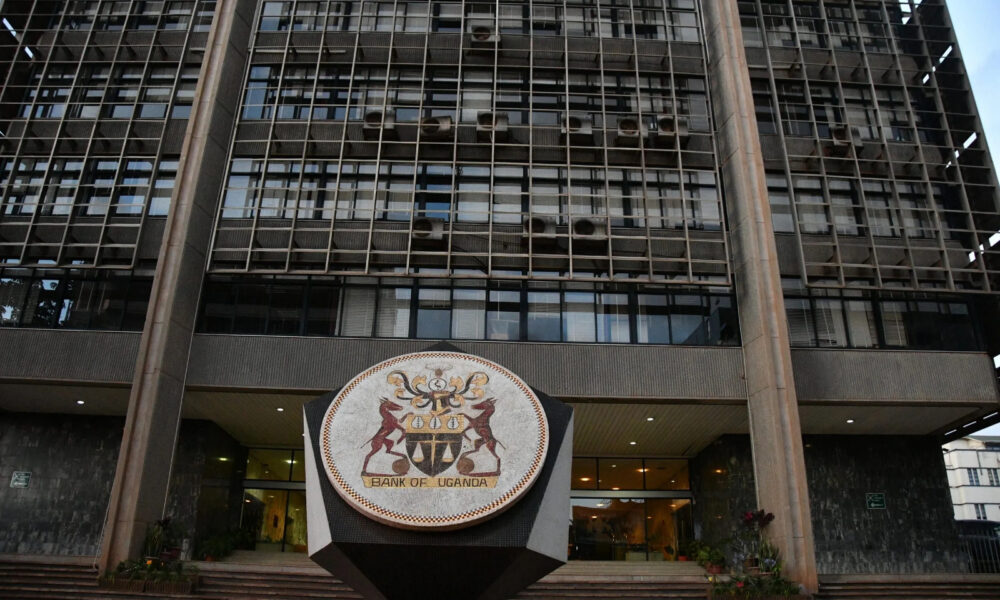
By Alexander Luyima
April 14, 2025
For over three decades, Uganda has hemorrhaged billions through grand infrastructure promises that became nothing more than elaborate cash siphons for the politically connected. What started as hope for development has decayed into national shame. Roads to nowhere. Hospitals built in thin air. Tractors that never tilled a single acre. And as always, no one goes to jail.
It’s time to name names, trace the money, and hold the untouchables accountable.
1. Lubowa Hospital: Shs 1.4 Trillion for Weeds
PROMISE: World-class medical tourism destination.
REALITY: A ghost site overgrown with bush.
Amount Lost: Shs 1.4 trillion
Company Awarded: Finasi/Roko Construction
Implicated:
Amelia Kyambadde (Former Trade Minister)
Evelyn Anite (Former State Minister for Investment)
PSST Keith Muhakanizi (deceased) (Approved funding despite public concern)
Quote:
> “This was never about medicine. It was engineered theft disguised as national development.” — MP Ibrahim Ssemujju Nganda
2. Dr. Musenero’s Shs 31B COVID-19 Vaccine Scam
PROMISE: Uganda-made COVID-19 vaccine by 2022.
REALITY: Fancy PowerPoints, no jab.
Amount Lost: Shs 31 billion
Lead Figure: Dr. Monica Musenero (Presidential Advisor on Epidemics)
Status: Cleared by Parliament despite strong evidence of misuse
Quote:
> “She turned a pandemic into a pay day. We saw zero results, yet billions vanished into luxury trips and allowances.”— Parliament Probe Committee (2022)
3. Basajja Balaba’s Leather Factory Fraud
PROMISE: Export-ready leather processing hub.
REALITY: Money used to buy personal real estate.
Amount Lost: Shs 24 billion
Implicated: Businessman Basajja Balaba (Close to State House)
Quote:
> “No factory, no output—just mansions. This is economic sabotage.” — Anti-Corruption Coalition Uganda
4. The Shs 4 Trillion Oil Refinery Mirage
PROMISE: Uganda to refine its own oil by 2020.
REALITY: Studies, workshops, and ghost investors.
Amount Lost: Over Shs 4 trillion
Implicated:
Irene Muloni (Former Energy Minister)
Ernest Rubondo (Petroleum Authority of Uganda)
Quote:
> “They’re stalling until the oil runs dry. Then they’ll say ‘Oops’ and retire rich.” — Ronald Kasirye, investigative journalist
5. The Umeme Privatization Scam
PROMISE: Efficient electricity.
REALITY: Highest tariffs, endless blackouts.
Implicated:
Ezra Suruma (Former Minister of Finance)
UMEME Ltd (Foreign investors, protected by government)
Quote:
> “This wasn’t privatization. It was a national sell-out for kickbacks.”
6. Katosi Road Project
PROMISE: Key highway in central Uganda.
REALITY: Fake contractors, fake companies.
Amount Lost: Over Shs 24 billion
Implicated:
Abubaker Technical Services (Nonexistent at time of contract)
Dan Alinange (UNRA Spokesperson at the time)
7. Northern Bypass Scandal
PROMISE: Dual-carriage to reduce congestion.
REALITY: A single lane and flooded potholes.
Amount Lost: Billions in inflated contracts
Implicated:
China Civil Engineering Construction Corp (CCECC)
Allen Kagina (UNRA Executive Director)
8. Coffee Deal Scandal
PROMISE: Boost coffee exports through value-addition. REALITY: Giveaway to Vinci Coffee Company, bypassing farmers.
Implicated:
Enrica Pinetti (Finasi)
Matia Kasaija (Finance Minister)
State House influence suspected
9. Luzira-Port Bell Project
PROMISE: Revive water transport.
REALITY: Dodgy contractors, no infrastructure.
Implicated: Uganda Railways Corporation, Ministry of Works
10. Kampala Drainage Projects (Bwaise/Lubiji)
PROMISE: End Kampala flooding. REALITY: Every rain turns roads into rivers.
Amount Lost: Shs 50 billion
Implicated: KCCA Engineering Department, Chinese contractors
11. Entebbe Road Project
PROMISE: World-class expressway. REALITY: Among the most expensive roads globally per kilometer.
Amount Lost: USD 476 million
Implicated: China Communications Construction Company, UNRA
12. Busega Market & Kampala Market Projects
PROMISE: Modern working spaces for vendors. REALITY: Vendors kicked out, politicians in.
Implicated: KCCA, Local government authorities
13. Bonna Baggagawale (Prosperity for All)
PROMISE: Household wealth creation. REALITY: Political mobilization fund.
Amount Lost: Hundreds of billions
Implicated: NRM mobilizers, microfinance agencies
14. NAADS & OWC Projects
PROMISE: Agricultural transformation. REALITY: Ghost farmers, fake seeds.
Implicated:
Gen. Salim Saleh (Coordinator, OWC)
NAADS Secretariat
15. District Tractors & Excavators Scheme
PROMISE: Mechanize farming across districts. REALITY: Tractors used for weddings, private farms.
Amount Lost: Shs 90 billion
Implicated:
Ministry of Agriculture
District officials
Why No One Is Ever Arrested
Because the biggest thieves are protected by the ruling NRM regime. The IGG, DPP, CID – all compromised. Even Parliament investigations vanish into silence. Many suspects are:
Relatives of top regime figures
Major NRM financiers
Close allies of President Yoweri Museveni
Call to Action
Ugandans deserve better. We must:
DEMAND accountability @GovUganda @Parliament_UG @IGGUganda
SUE for recovery of funds: @AntiGraftUG @UgandaLawSociety
CALL OUT international funders @WorldBank @IMFNews for aiding theft via soft loans
https://hoimapost.co.ug/ugandas-stolen-billions-the-shocking-list-of-government-projects-that-became-cash-cows-for-the-corrupt/
https://hoimapost.co.ug/ugandas-stolen-billions-the-shocking-list-of-government-projects-that-became-cash-cows-for-the-corrupt/ , hoimapost.co.ug
https://hoimapost.co.ug/ugandas-stolen-billions-the-shocking-list-of-government-projects-that-became-cash-cows-for-the-corrupt/ , https://hoimapost.co.ug/ugandas-stolen-billions-the-shocking-list-of-government-projects-that-became-cash-cows-for-the-corrupt/ ,
hoimapost.co.ug , https%3A%2F%2Fhoimapost.co.ug%2Fugandas-stolen-billions-the-shocking-list-of-government-projects-that-became-cash-cows-for-the-corrupt%2F